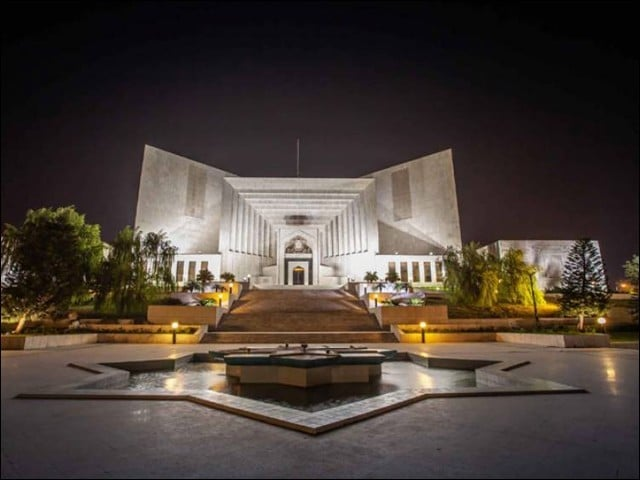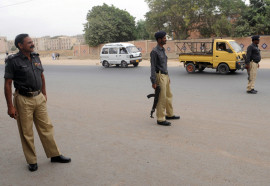
A petitioner, who had challenged the trial of his son in a military court following the May 9 incident, on Tuesday approached the Supreme Court to expedite the hearing of the case.
Junaid Razzaq submitted an application through his counsel Salman Akram Raja, arguing that the military court trials had already begun, and requested that the case be scheduled for the third week of October.
The petitioner claimed that this commencement of military court trials for civilians was a clear violation of the apex court's order issued on Aug 3, 2023.
“As such, an early hearing of the titled petition shall be in the interest of justice, otherwise if the trial of the petitioner's son commences and concludes in haste, the petitioner shall suffer irreparable loss,” the plea contended.
The petitioner had already filed a separate application urging the Supreme Court to immediately halt the military court proceedings in his son's case.
Read SC quashes FIR against news channel director
It stated that contrary to the commitments made before the SC, and in violation of its orders, the petitioner came to know that trials of civilians before military courts had commenced.
It explained that the applicant learnt about the development because, in his capacity as an advocate, he was representing one of the civilians facing a trial before military authorities and therefore was aware that field general court martial had been convened for this purpose and the lawyers of various detainees had been contacted for this purpose.
“The applicant/petitioner placed the orders of this honourable court before the military authorities, but to no avail."
The application stated that the petitioner’s son, Arzam Junaid, was also detained by military authorities for the purpose of subjecting him to a trial by military courts.
Arzam was admittedly arrested on May 15 and was transferred to the custody of commanding officer Lahore on May 25. Hence, a period of more than four months had lapsed since the transfer of his custody to the military authorities.
For all practical purposes, the petitioner said, he was in the custody of the military authorities on physical remand, arguing that the law did not envisage physical remand of any person beyond a period of 14 days of his arrest.
“That adherence to law and observance of the same is unavoidable duty and obligation of every person and authority in Pakistan. As submitted above, the law has not been observed in its letter and spirit in the case of Arzam Junaid and the other detainees and the intervention of this honourable court is required for the purpose.”
The application highlighted that it was also worth mentioning that the fundamental rights of Arzam and all other detainees were “seriously infringed upon by subjecting them to a trial under Pakistan Army Act, 1952 (the Act of 1952)”.
In this regard, it was specifically averred that the Act of 1952 did not contain any provision regarding judicial remand of an accused.
The army authorities had been given “a carte blanche” to keep the accused in physical remand for an indefinite period with just a minor obligation of informing the superior officer.
Further, it argued that the right of the accused to apply for and get bail was not provided for in the Act of 1952. Hence, an accused detained was to remain in custody until he was finally acquitted. Due to the bar contained in Article 199(3) of the Constitution, no writ petition could be filed against the army authorities detaining the accused, the petition noted.
“It is therefore respectfully submitted that totally in violation of the constitutional guarantees and even in opposition to the accepted norms of administration of criminal justice, basic rights of an accused are not available under the Act of 1952. The decisions to try civilians under the Act of 1952 are thus in violation of the express mandate of the Constitution.”
It pleaded that the Punjab IG be directed to provide protection and security to the applicant as well as his other family members.
Further, it also requested the top court that all the authorities be directed not to proceed against the petitioner or any of his family members in violation of the law.



1724318195-0/BeFunky-collage]_____-(59)1724318195-0-165x106.webp)



1730786905-0/£300,000-(1)1730786905-0.png)








1730706072-0/Copy-of-Untitled-(2)1730706072-0-270x192.webp)
COMMENTS
Comments are moderated and generally will be posted if they are on-topic and not abusive.
For more information, please see our Comments FAQ